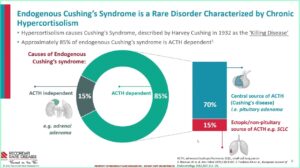NEW YORK (Reuters Health) – For women with anorexia nervosa, weekly risedronate increases spinal bone mineral density over the course of a year. Adding low-dose testosterone does not improve BMD further, but does increase lean body mass, a Boston team reports in the July issue of the Journal of Clinical Endocrinology and Metabolism.
Dr. Karen K. Miller, with Massachusetts General Hospital, and colleagues note that Aanorexia nervosa is complicated by severe bone loss, and estrogen administration does not prevent this.
To see if antiresorptive bisphosphonate therapy with or without replacement testosterone could increase BMD in this setting, the researchers conducted a 12-month randomized trial involving 77 ambulatory women with anorexia, average age 26 years.
The participants were assigned to one of four treatment arms: risedronate 35 mg/week, transdermal testosterone via a 150-mcg patch daily, a combination of the two agents, or placebo.
Compared with placebo, risedronate increased posteroanterior spine BMD 3.2%, lateral spine BMD 3.8%, and hip BMD 1.9%, according to the report.
There was no significant difference in BMD response to risedronate between patients receiving testosterone concomitantly and those receiving placebo patches, the team found. However, testosterone increased lean body mass 1.9% compared with placebo.
The effect of risedronate on BMD “is an important finding given the lack of effectiveness of other agents,” Dr. Miller and colleagues point out.
However, they add, “Whether bisphosphonates should be routinely prescribed to women with anorexia nervosa to prevent or reverse bone loss is unclear, and it should be noted that they are not approved by the U.S. Food and Drug Administration for this indication at this time.”
Reference:
Effects of Risedronate and Low-Dose Transdermal Testosterone on Bone Mineral Density in Women with Anorexia Nervosa: A Randomized, Placebo-Controlled Study
J Clin Endocrinol Metab2011;96.




